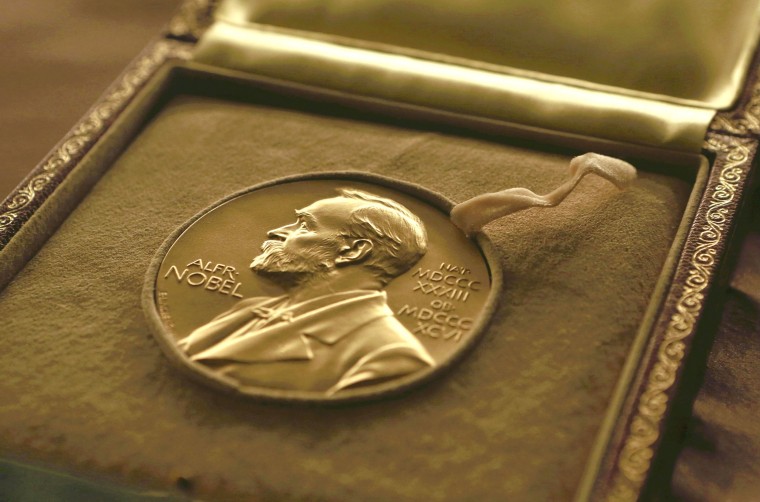There will be no Nobel Prize in Literature awarded this year.
The 2018 award has been postponed following a controversy over alleged sexual misconduct that has seen a string of board members leave the Swedish Academy, the cultural institution that awards the prestigious prize.
The decision was released to the public online, with no further comment, on Friday morning. Two prizes are now expected to be awarded in 2019.
The Swedish Academy said the decision was arrived at in view of "the reduced public confidence" in the institution.
“We find it necessary to commit time to recovering public confidence in the academy before the next laureate can be announced,” Anders Olsson, the academy’s permanent secretary, said in a statement. He said the academy was acting “out of respect for previous and future literature laureates, the Nobel Foundation and the general public.”
In another release, the chairman of the board of the Nobel Foundation, Carl-Henrik Heldin, said the crisis in the academy has "adversely affected the Nobel Prize," but he said the foundation supports the decision to postpone the Literature Prize.
Heldin says the academy's decision underscores the seriousness of the situation and will help safeguard the long-term reputation of the Nobel Prize.
The Swedish Academy, a council of prestigious authors and linguists tasked with furthering the Swedish language, has been dealing with the fallout from allegations of sexual misconduct by the husband of one of its members and leaks of the names of some prize-winners ahead of the formal announcements.
Photographer and cultural figure Jean-Claude Arnault, who is married to academy member and author Katarina Frostenson, has denied all allegations, both of sexual misconduct and of leaking the names of the laureates.
Last fall, Dagens Nyheter, one of Sweden’s largest newspapers, published sexual misconduct claims from 18 women against Arnault.
Arnault also has been suspected of violating century-old Nobel rules by leaking names of winners of the prestigious award — allegedly seven times, starting in 1996. It was not clear to whom the names were allegedly disclosed.
The academy later admitted in a report that “unacceptable behavior in the form of unwanted intimacy” took place within its ranks, but its handling of the allegations shredded the body’s credibility, called into question its judgment and forced its first female leader to resign.
A debate over how to face up to its flaws also divided its 18 members — who are appointed for life — into hostile camps and prompted seven members of the prestigious institution to leave or disassociate themselves from the group.
The controversy has prompted calls for the secretive institution to become more transparent.
"[The Swedish Academy] is an independent institution and [is] responsible for rebuilding confidence in their work," Swedish Minister of Culture Alice Bah Kuhnke said in a statement to NBC News. "For literature and art as a whole, everything that has happened is also very sad.”
The academy said Friday its active members are in agreement that there is room for change and modernization, including tightening of routines regarding conflict-of-interest issues and the management of information classified as secret.
"The Nobel Foundation presumes that the Swedish Academy will now put all its efforts into the task of restoring its credibility as a prize-awarding institution and that the academy will report the concrete actions that are undertaken," said Heldin. "We also assume that all members of the academy realize that both its extensive reform efforts and its future organizational structure must be characterized by greater openness toward the outside world."
A postponement or cancellation of a Nobel Prize is rare but not unprecedented. The last time the literature prize was not awarded was in 1943, at the height of World War II.
"In principle, the Nobel Prize shall be awarded every year, but decisions on Nobel Prizes have been postponed on a number of occasions during the history of the prizes," Heldin said. "One of the circumstances that may justify an exception is when a situation in a prize-awarding institution arises that is so serious that a prize decision will not be perceived as credible."
It's expected the winner of this year's Literature Prize will be announced in parallel with the 2019 laureate. The Swedish Academy has chosen to declare a “reserved prize” seven times in the past: in 1915, 1919, 1925, 1926, 1927, 1936 and 1949. On five of those occasions, the prize was delayed then awarded at the same time as the following year’s prize.
The decision to postpone the awarding of the Literature Prize will not affect the awarding of the 2018 Nobel Prizes in other prize categories.
Last year, Japanese-born British novelist Kazuo Ishiguro won the prize.

